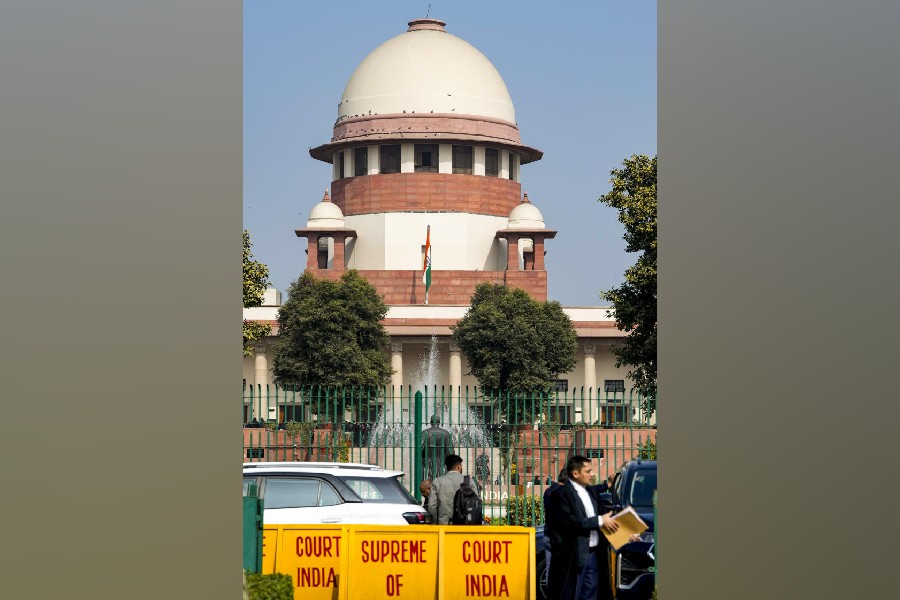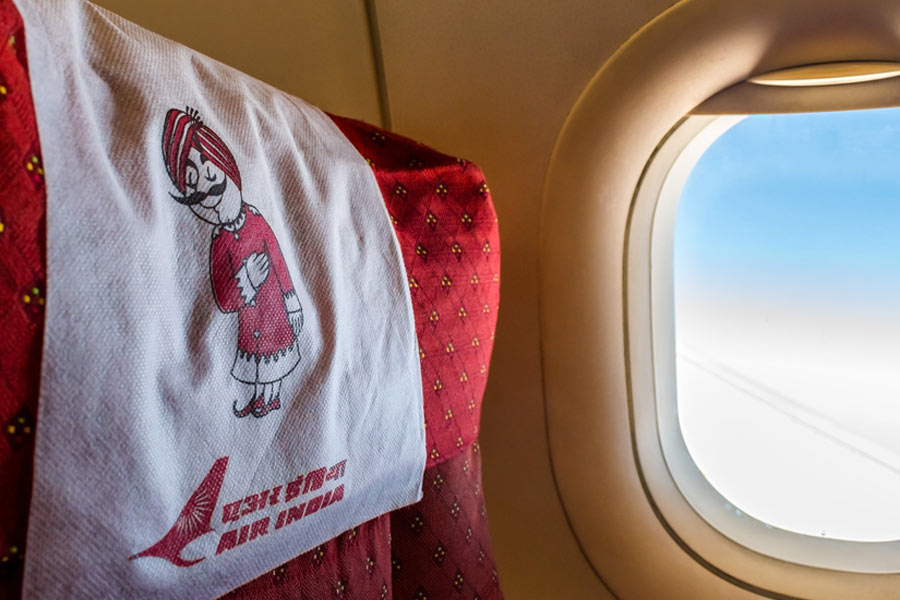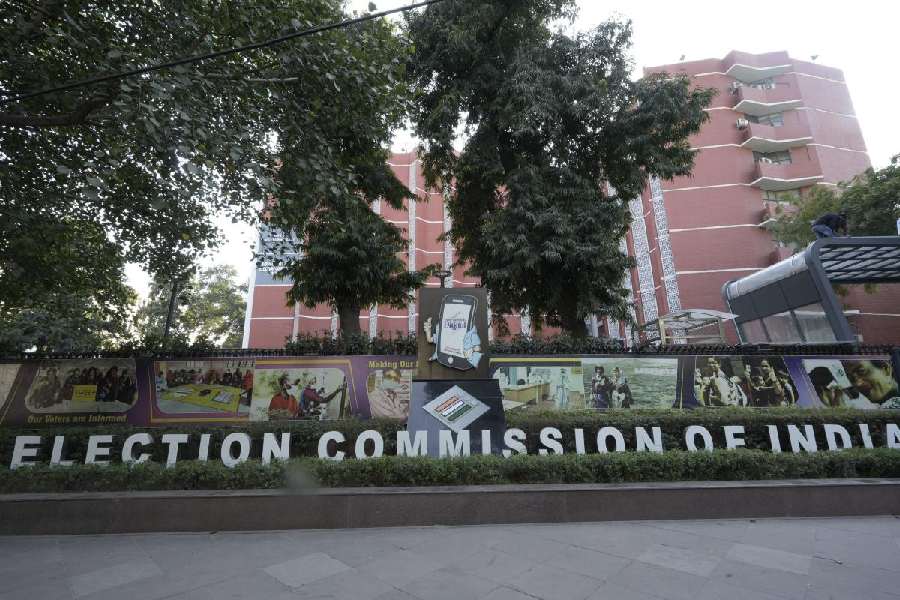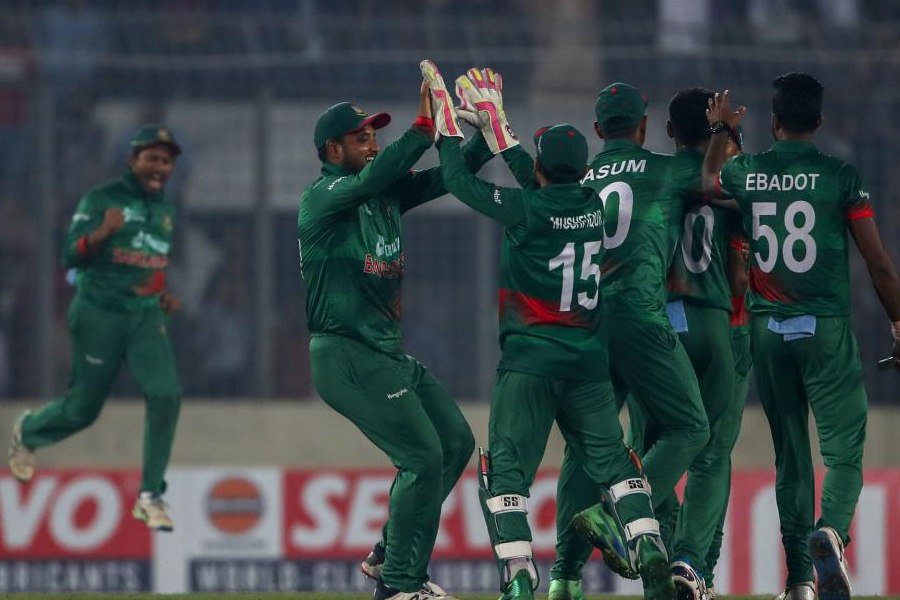.jpg)
Mumbai, Feb. 16: Rajiv Bajaj, managing director of two-wheeler maker Bajaj Auto, today suggested that the idea of demonetisation itself was wrong, becoming the first industrialist to stray from the beaten track of blaming implementation while lauding the Prime Minister's "big idea".
"If the solution or the idea is right, it will go like a hot knife through butter... if the idea is not working, for example demonetisation, don't blame execution. I think your idea itself is wrong," Bajaj said at the annual Nasscom leadership forum here.
Bajaj, whose two-wheeler business bore the brunt of the demonetisation drive that badly crimped demand for scooters and motorcycles in the country, suggested it was wrong to try and look for scapegoats who could be blamed for the poor execution of the programme when the idea itself was badly flawed.
Rajiv Bajaj is clearly a chip off the old block. His father Rahul Bajaj has been critical of governments and policy makers, famously slamming Narendra Modi for the law-and-order situation in Gujarat at a Delhi conclave of the Confederation of Indian Industry (CII) in February 2003.
Modi had bristled when the Bajaj patriarch had remarked that 2002 was a "lost year for Gujarat". An infuriated Modi had invited Bajaj and his "pseudo-secularist" friends to Gujarat where he promised to answer their "sharp questions". That meeting never took place - and the CII was later forced to issue an apology to Modi.
There has been withering criticism of the demonetisation programme on social media while politicians like Bengal chief minister Mamata Banerjee have also castigated the move. But industrialists have been extremely circumspect while talking about demonetisation and its crippling after-effects, careful not to upset the Modi government.
Modi has been speaking about the success of his so-called "surgical strike" against black money in the country without being able to show how much his government has been able to find.
The Reserve Bank of India has ducked a persistent demand for data on the value of the old notes that flooded back into the financial system till December 30 when the bank's teller windows were kept open. Official data show that old notes worth Rs 11.5 lakh crore had come back into the banking system by December 10 out of the Rs 15.5 lakh crore that lost its legitimacy on November 8. The central bank has since clammed up.
Growth in two-wheeler sales turned sharply negative since the demonetisation drive kicked in. In December, domestic sales tumbled 22.04 per cent from a year ago, accentuating the crisis in the industry. Sales in January were down 7.39 per cent, leaving two-wheeler makers like Bajaj Auto in a deep rut.
Rajiv Bajaj also took potshots at Modi's Make in India initiative, arguing that regulatory approvals at the Centre were stifling innovation in the country.
"If your innovation in the country depends on government approval or the judicial process, it will not be a case of 'Made in India', but 'Mad in India'. After five years, we are still waiting for permission to sell our four-wheeler in the country," Bajaj told industry executives at the Nasscom meet.
Bajaj Auto has been looking to introduce the quadri-cycle in India but has been stymied by regulators. "This is the only country that has not given us permission to sell this vehicle. Because for some reason, it thinks a four-wheeler is worse; let people continue with three-wheelers," Bajaj said. It was "obvious as daylight" that a quadri-cycle was cleaner, fuel-efficient and safer.
Bajaj said he used to be ribbed by his friends in school about the three-wheelers that his company used to make.
"One day, I sat down with my guys and said do something that is little more respect-worthy. We said the best three-wheeler could be a four-wheeler; it should have a seatbelt, hard roof, four doors. We created a category of vehicle called the quadri-cycle," he added.
He said his company was "anti-car" and would never produce one.
Bajaj Auto, which once made scooters, would never do so again, he said, adding that motorcycles were its core strength. "Media and analysts call it de-risking. It is not; it is gambling! This is playing darts, distraction and fragmentation of resources. You must be like Arjun, see the eye of the bird and go for it," he said.

.jpg)








